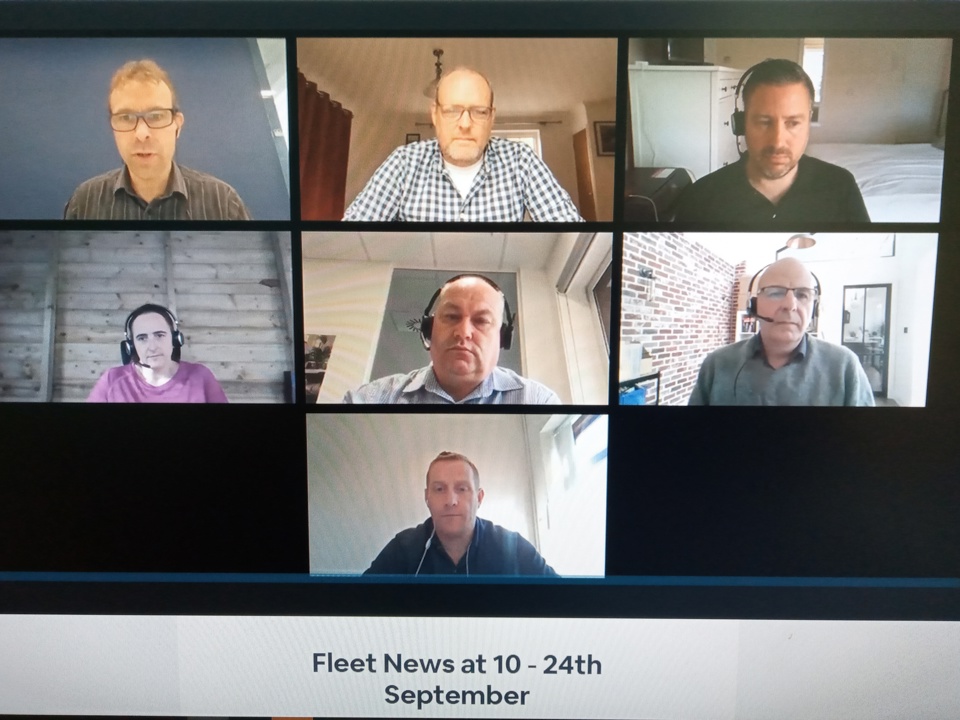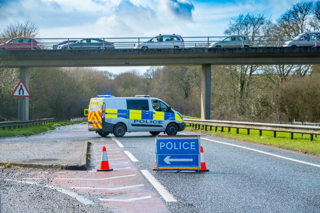Fleet News at 10 panellists criticised the Government’s attempts to ease the shortage of HGV drivers by proposing drivers only take one test for both rigid and artics, instead of two separate tests, plus removing the reverse exercise element from the test.
Matt Hammond, head of fleet at M Group Services, said: “It’s ridiculous. You need to work up to an artic – it’s an incredibly skilled job and you learn your trade as you go through from 7.5-tonne to rigid to artic.”
He added: “The problem isn’t drivers getting through the test – this isn’t a new problem. It’s come because nobody wants to drive an HGV. It’s not a shortage of drivers; it’s a shortage of drivers who want to drive an HGV. We need to review the whole industry and how we treat these guys.”
Lorna McAtear, National Grid fleet manager, described the proposals as “bonkers”.
“I’m hoping the changes don’t come in. It’s a sticking plaster, a reaction not a response. There is no respect for what is an incredibly skilled job,” she said.
“It’s hard to recruit young people and females when you have shoddy facilities out on the road. We expect people to work overnight unsavoury hours, not get as much money for it – there’s just no respect. We have to make this industry attractive again.”
Viewer Renny Thomson, a former LGV driver and instructor and now a health and safety adviser, agreed that the underlying root cause of the shortage is “the way that drivers are treated - by the general public and motorists, by the distribution centres where they deliver, by the Government for not having a policy to encourage truck stops and by motorway services not being fully open overnight to provide welfare facilities”.
However, he added that the proposal was to move assessment of reversing and coupling/uncoupling out of the DVSA Testing procedure so that it was carried out by 3rd party training providers. They would, he insisted, still be tested/assessed on their ability to reverse.
Hammond responded: “For me, the concern is it’s fast tracking the whole process and the experience the driver will get from working through the system. It takes years to get the experience; they are looking to short-cut a system that shouldn’t be short-cut.”
Meanwhile, viewer Graham Telfer, fleet manager at Gateshead Council, had concerned over the skills and knowledge of some trainers, pointing out: “Unlike car driving trainers who are on Government Register, HGV trainers are not required to register or have a qualification.”
Driver shortages will be discussed at next week's Fleet & Mobility Live show with Chris Yarsley, Logistics UK’s policy manager for Wales, Midlands and South West, and Kieran Smith, Driver Require chief executive, looking at driver recruitment and retention. Register for the show.
Also debated on the latest Fleet News at 10 were:
- Charge points – and the implications of peak time restrictions recently announced by the Government, plus advice for fleets of managing their workplace charging.
- Changes to the HSE guidance on driving and riding for work, which has been updated to reflect the rise of the ‘grey fleet’ and the gig economy.
- New towing laws – do they increase risk?
- Project EDWARD – why fleets should get involved.
- Impact of a new national identifier for vehicles going abroad.
- Lead times update and advice for fleets, plus concerns about the current fuel shortage.
View the Fleet News @ 10 webinar
To find out the panellists’ views on these topics, click here to view the webinar.
Fleet News at 10 panellists are:
- Paul Hollick, Association of Fleet Professionals chair
- Lorna McAtear, National Grid fleet manager
- Duncan Webb, ISS head of fleet
- Chris Connors, Countryside Properties head of facilities and fleet
- Matt Hammond, M Group Services head of fleet
- Jim Gregory, Defra Group Fleet Services strategic fleet manager
























Login to comment
Comments
No comments have been made yet.